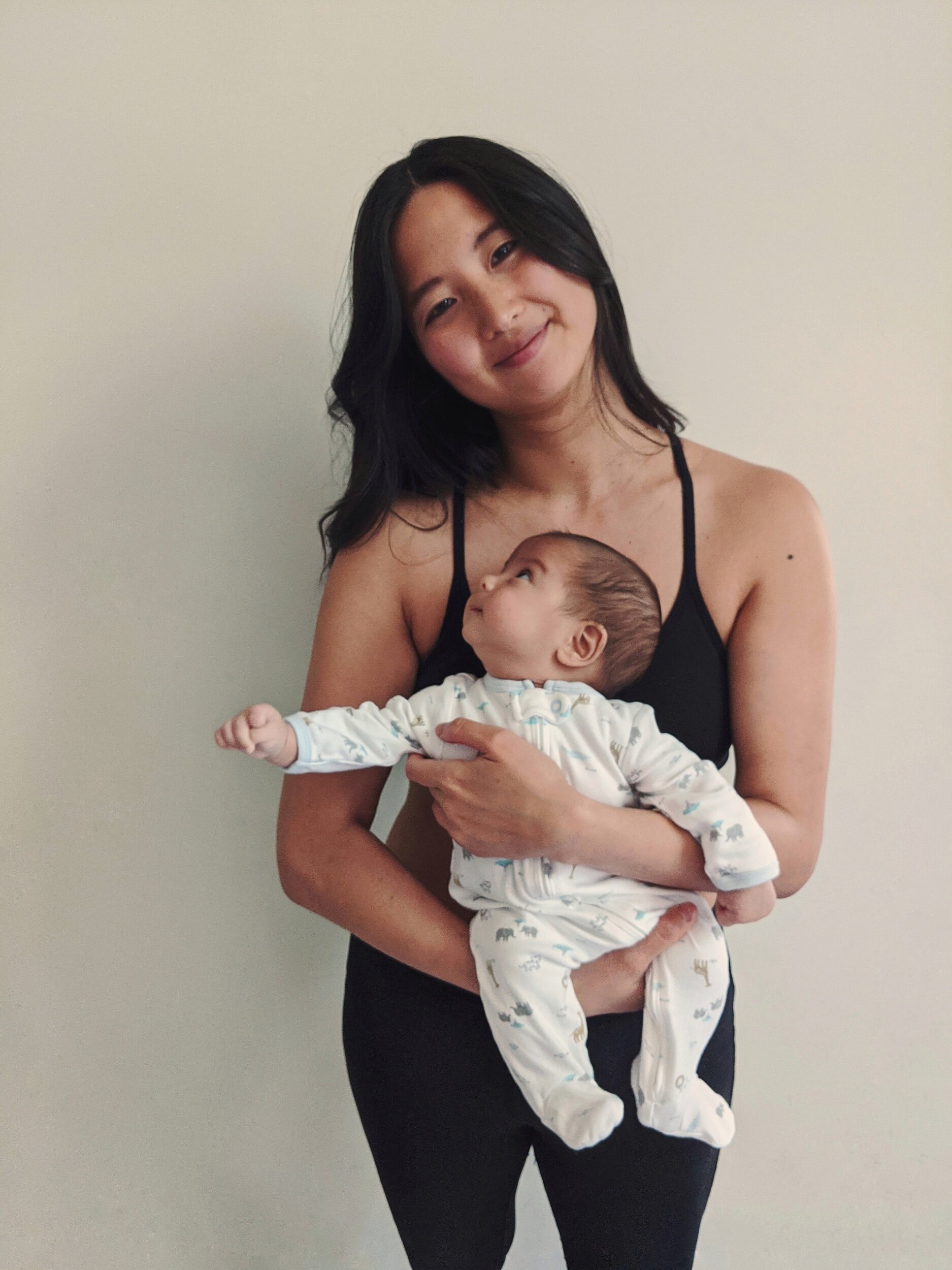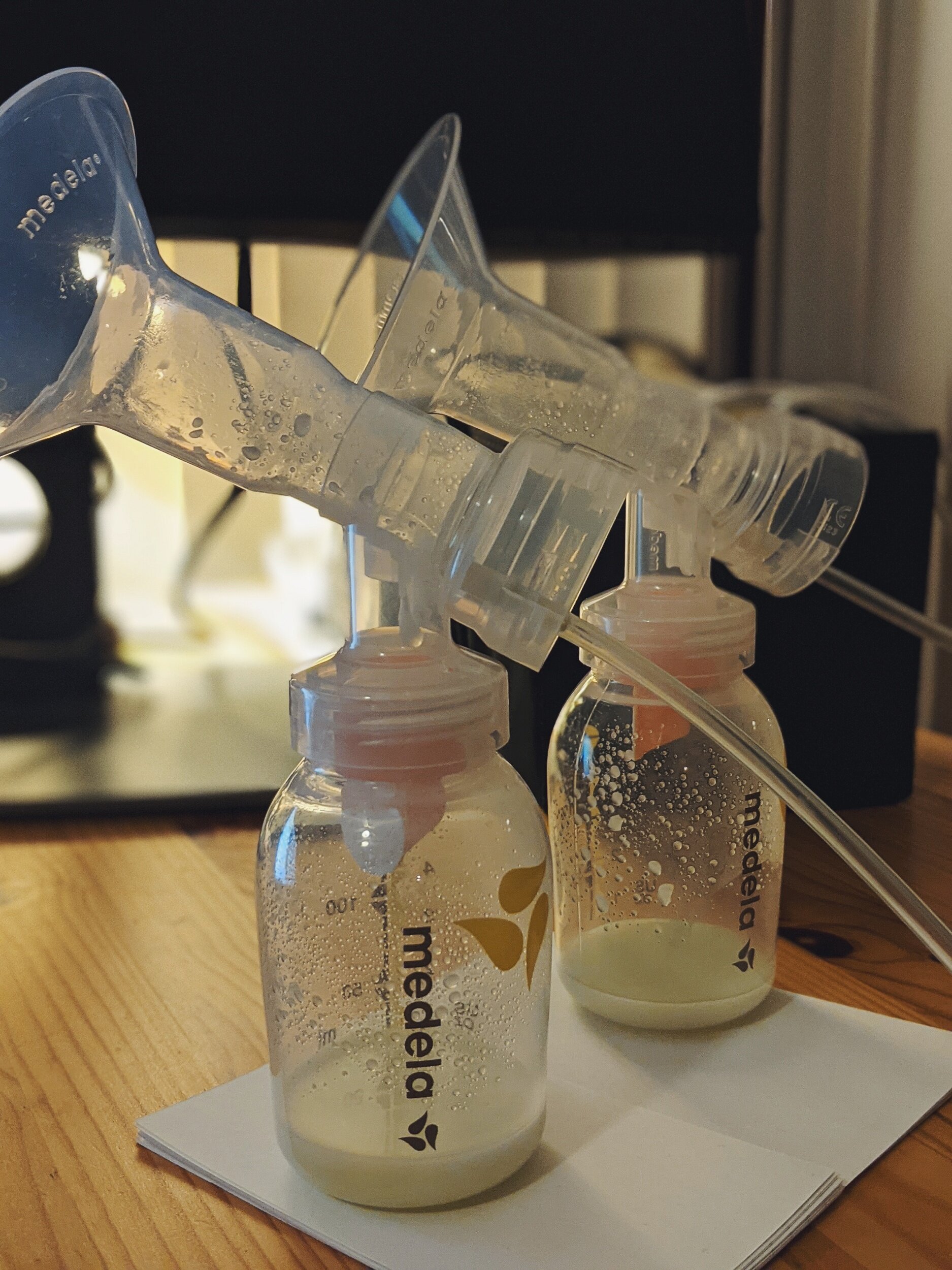This month, I officially stopped breastfeeding. After nearly nine months of constantly thinking about when to breastfeed or pump, stressing about emptying my breasts every two hours, sitting at the pump for hours, it’s so strange to be done. My brain hasn’t quite caught up with my body.
I’ve never been able to produce enough milk for my children so that they were exclusively breastfed. Sessions with a lactation consultant didn’t improve my supply. My children have always needed to supplement with formula. With my firstborn, I didn’t anticipate my low supply and beat myself up about it. With my secondborn, I expected it and had a much healthier attitude about feeding my baby formula.
That being said, while G was in my belly, I told Steve I’d be fine with her being completely formula-fed from the beginning - because breastfeeding is literally and figuratively so draining on my body. When she was born, I thought, ‘Maybe I’ll give this breastfeeding thing a go because I probably won’t be able to breastfeed for very long anyway.’ After a couple months, I thought, ‘I’ll keep going until it’s very clear my body is done.’ Three months passed, then five months passed and I thought, ‘Maybe now I’ll stop.’ At this point, my milk supply had dipped significantly. But, I kept pumping. Something innate in me wanted to try to squeeze as much milk out of me as I possibly could for my baby (cue martyr syndrome). Even as month 8 crept up and my body was barely producing any milk, I kept sitting at my desk, tied to the pump – trying to convince my body to keep producing. I kept trying to breastfeed G despite her biting, pawing, and tearing away when she realized as soon as she latched that there was nothing but droplets. Whereas Bub would happily comfort-nurse, G was less inclined and quickly grew impatient if there wasn’t any milk for her to drink.
Honestly, towards the end, I too started growing tired of it all. I was tired of feeling guilty for not pumping or nursing around-the-clock. If I were to listen to “expert” advice about pumping every two hours to keep my milk production going, I’d be pumping or nursing for 6-8 hours a day. That left little time for anything else, challenging when I have another kid to take care of. Breastfeeding is an unpaid, often unseen, full-time job I’m glad I don’t have to do anymore, especially because the juice really wasn’t worth the squeeze given my sad supply.
I was emotional during my last nursing sessions with G. I was emotional feeding her the last bottle of breastmilk that I pumped. I’ll miss the special bonding time breastfeeding provided G and me. I’ll miss the excuse to “take a break” at my desk to pump. But mostly, I was so emotional because this is the last time that I’ll ever breastfeed a baby. My breastfeeding era is officially over.
A part of me held on to breastfeeding for as long as I could because stopping symbolized my baby not needing me anymore. I wasn’t ready to face the fact that she is quickly growing out of being a baby. My last baby.
Breastfeeding has made me appreciate my body in utterly new ways. It’s made me feel anger and frustration towards my body. It’s taught me that I really don’t know my body at all and that no one really does because women’s bodies aren’t researched enough. I don’t understand how my body produced milk. When I thought I’d produce more milk, I didn’t. When I least expected my body to produce milk, it surprised me with more. I don’t understand dysphoric milk ejection reflex and why I felt depressed every time I pumped. I don’t understand why when I stopped breastfeeding, I had horrible intense mood swings. I don’t understand my hormones and as a result, I feel like I barely know myself. My breastfeeding days may be over but my journey to better understanding myself continues.
“In terms of brains, we may be first among mammals, but we are mammals nonetheless, and as such we cannibalize our mothers in order to live.”







